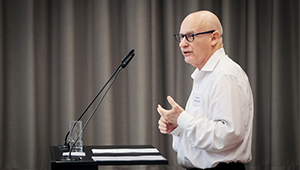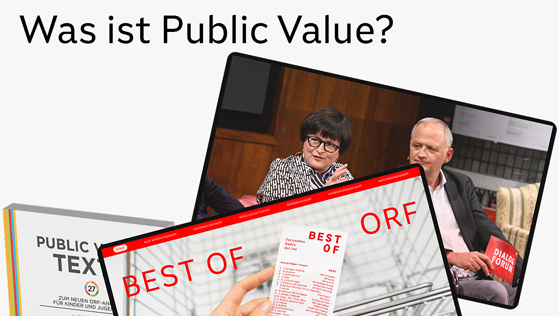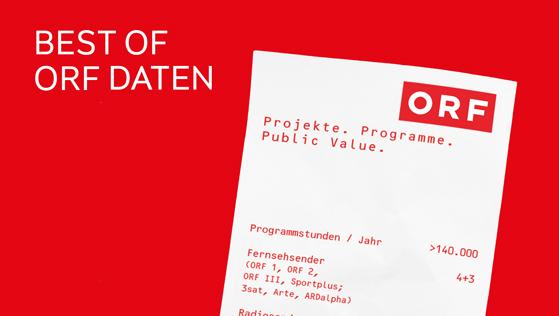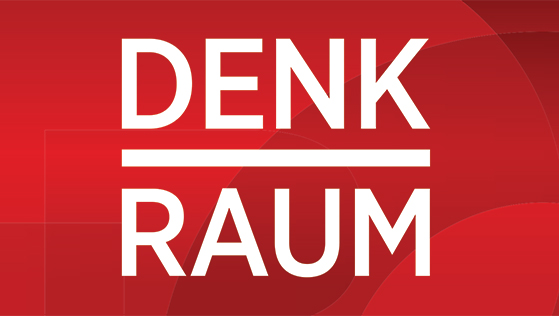 RIPE, the most important academic conference on public service media, met in Vienna in 2022 and provided a forum to address diverse aspects of the media quality discourse from the perspective of diverse European research institutions. This year's keynote address "The War against the BBC - What's at Stake and Why it Matters" was given by Patrick Barwise. The LIVE STREAM of the first day of the conference at ORF - including the keynote speech - can also be found here.
RIPE, the most important academic conference on public service media, met in Vienna in 2022 and provided a forum to address diverse aspects of the media quality discourse from the perspective of diverse European research institutions. This year's keynote address "The War against the BBC - What's at Stake and Why it Matters" was given by Patrick Barwise. The LIVE STREAM of the first day of the conference at ORF - including the keynote speech - can also be found here.
The War against the BBC -
What's at Stake and Why It Matters
Keynote @RIPE2022 by Patrick Barwise
When Peter York and I began researching our book five years ago, some people thought the title - the war against the BBC - overstated. No one says that now. The 'war' we describe is a civil war within Britain. Autocrats and demagogues around the world also attack the BBC. But the book is about people attacking it in the UK. This is part of a worldwide drift towards reduced democratic freedom and accountability, weakened independent media and, as I'll show, less well-informed publics.
The book's subtitle is 'How an unprecedented combination of hostile forces is destroying Britain's greatest cultural institution… and why you should care'. Of course, the hostile forces include technology and consumption trends, online competitors and rising costs.
But they also include the deliberate influence of commercial and political vested interests, reinforced by free-market ideology.
Some commercial media leaders see the BBC as unhelpful competition, reducing their revenue and profit. The fact that this perception is largely unfounded doesn't help. Rupert Murdoch, in particular, has long claimed it crowds out commercial media, actually reducing consumer choice.
When Sky was part of his empire, he claimed that BBC TV provided unfair competition to it and BBC Online - by offering high-quality, open access, highly trusted, advertising-free online news and other content - materially reduced newspapers' online income. Having now sold his interest in Sky and invested in UK commercial radio, his attacks have switched to BBC Radio.
In reality, studies have consistently found no evidence that the BBC crowds out commercial media. There is even some evidence of the opposite: a 14-country study in 2013 found that, with the marked exception of the USA, countries with strong PSBs tended to have stronger commercial broadcasters, measured by per capita revenue. And US newspapers, with no BBC, find it just as hard to generate online advertising revenue to replace lost print revenue. In 2019, a government-commissioned review on financially sustainable journalism specifically rejected claims that BBC Online threatened UK newspapers, arguing instead that, 'curtailing the BBC's news offering would be counter-productive [as] the BBC offers the very thing this review aims to encourage: a source of reliable and high-quality news, with a focus on objectivity and impartiality, and independent from government'.
Because PSBs now deliver their mission online as well as through broadcast channels, many people - including this conference - prefer the term public service media or PSM. That's fine - as Juliet says of Romeo, 'what's in a name?' - unless it makes you underplay the continuing importance of broadcasting. All PSM are still mainly broadcasters in the sense that most of their money still goes into creating TV and radio content. They now distribute that content using both broadcast and online channels - but that, to me, is a secondary issue. We can all pretty much agree that a PSB is a national broadcaster whose licence requires it, as far as possible, to be universally available, deliver specific social benefits - not just entertainment - and be editorially independent.
The definition of PSM is, to me, less clear. For instance, does it include The Guardian, which certainly has a public service mission and is open source, non-profit and partly funded by voluntary donations?
Broadcasting is still enormously important.
The average Brit still consumes the BBC's services for two-and-a-half hours a day! 90 per cent of that is of TV and radio content - mostly consumed on broadcast channels. Those attempting a political or military coup still try to take over the national broadcaster to control the public's most important information source. And Russian state TV has been central to the Kremlin's - still largely successful - effort to build and sustain public support for the Ukraine war.
Even in stable democracies, politicians inevitably try to influence PSBs' political coverage - and the more widely consumed and highly trusted the PSB, the greater their motivation to do so. In Britain, it's a lot. In the US, not at all, except in its early days under Richard Nixon.
Nor are commercial and political vested interests always distinct. According to The Economist, when Silvio Berlusconi was the Italian prime minister, he controlled - among other media - 90 per cent of national TV broadcasting, either directly through his privately owned channels or indirectly by appointing supporters to manage RAI.
In Britain, the links between commercial and political vested interests aren't so extreme. But Rupert Murdoch, in particular, has used his control of the biggest newspaper group to build mutually beneficial relationships with most prime ministers since 1979, including Labour's Tony Blair.
These relationships are invariably bad for the BBC: Blair is the only prime minister who has ever forced the resignation of the BBC's chairman and director general.
It would be naive not to see this as a sort-of conspiracy.
Not a mad, overarching conspiracy like QAnon, more one where people with overlapping interests talk offline and co-ordinate their actions.
This is the bread and butter of local, national, international and organisational politics.
Whatever the specifics, all publicly-funded PSBs are now squeezed between reduced funding and ever-rising costs and competition.
In BBC's the case, the funding cuts since 2010 are much deeper than most people realise.
After the Conservatives' 2015 election victory, finance minister George Osborne had six secret meetings in eight weeks with Murdoch executives, including two with Murdoch himself. He then imposed the deepest ever cut in BBC funding - on top of one he'd already imposed in 2010.
By 2019, the real (inflation-adjusted) public funding of the BBC's UK services was 30 per cent down on 2010.
The BBC clawed some of that back through its much criticised decision to limit free TV licences for the over-75s to those in poorer households - and then persuading over 90 per cent of those no longer eligible to pay up.
But in January, the government announced another two-year licence fee freeze. With 9 per cent annual inflation, that will increase the cumulative cut in real funding since 2010 to almost 40 per cent by March 2024, with possibly worse to come.
The BBC has so far managed to protect its services through efficiency gains, commercial income growth and trimmed programme budgets.
But, as the cuts continue, it will increasingly have to replace expensive programmes like high-end dramas and natural history shows with cheaper ones and more repeats.
The risk is that this creates a vicious circle, with more people refusing to pay the licence fee, further reducing programme budgets, and so on, leading to a crisis sometime in the next four-to-five years.
PSBs in smaller countries have it even worse because their income depends on the population size, while production costs are fixed.
DR, the Danish PSB, once told me there are more boy scouts in the world than Danish speakers…
On top of these financial pressures and technology challenges, PSBs also face endless attacks on the accuracy and impartiality of their news coverage.
In the BBC's case, efforts to persuade the public not to trust it have, so far, been largely unsuccessful.
If UK adults are asked, 'Which ONE news source would you turn to for news you trust the most?', the BBC, on 51 per cent, completely dominates the responses, followed by ITV on 9 per cent, Sky 6 per cent, The Guardian 4 per cent, and Channel 4 4 per cent.
None of the right-wing anti-BBC newspapers gets more than 1 per cent - the same as Al Jazeera, Twitter and Facebook.
Government attacks on the BBC's impartiality are always framed as attempts to rectify a supposed left-wing bias. But is the BBC's news coverage systematically biased to the left?
In The War Against the BBC, we look at this in some detail.
None of the BBC's respectable critics - newspapers, politicians, think tanks - has ever seriously claimed that its news coverage is inaccurate.
Instead, the claim is that it is biased in its choice of topics (and how these are framed) and interviewees (and how they are interviewed).
In both football refereeing and news reporting, bias is very much in the eye of the beholder. So who's right about 'BBC bias'?
The best evidence is from Cardiff University analysis of the BBC's UK news coverage in 2007 and 2012.
This suggests that BBC News was marginally biased in favour of the government of the day in both years - but this bias was somewhat more when the Conservatives were in power in 2012 than under Labour in 2007 - the exact opposite of the repeated claim of left-wing bias.
Nor do perceptions among the general public support the claim that the BBC's news coverage is biased to the left.
Those who are older, socially conservative and right-leaning do tend to agree with this claim, but they are in a minority. An almost equal number - typically younger, socially liberal and left-leaning - see the BBC as biased to the right (and part of the 'Establishment'); while a large number in between see it as broadly impartial.
So, if the best evidence is that the BBC's news coverage doesn't systematically lean to the left, and most of the public don't think it leans to the left, why are most of the attacks on it from the right?
When we started researching the book, we expected to find some imbalance, with slightly more attacks from the right than from the left.
What we found was much more extreme: the organised attacks on the BBC - by people, as part of their day jobs at newspapers, political parties and think tanks - are overwhelmingly from the right.
We think there are five possible reasons for this imbalance:
First, ideology: free-marketeers will always see the BBC as an unnecessary or disproportionate 'intervention'. They think its only valid role is to address 'market failure', showing public service content that the market can't provide.
Secondly, commercial vested interests are mostly right-leaning.
Thirdly, resources: right-wing UK think tanks and political parties are better - and more opaquely - funded than those on the left.
Fourth, outlets: most UK newspapers lean to the right, especially if weighted by readership. (And yes, they still matter a lot).
Finally, what we've called the 'silent majority illusion': at least anecdotally, many on the right seem to be more likely (albeit mistakenly) to think most other people agree with them.
In summary: the BBC and other PSBs face an unprecedented combination of technology, consumption and market trends and deliberate undermining by hostile forces, overwhelmingly from the right.
But the biggest challenges are financial, especially for those, like the BBC, whose core funding is set by governments. They are caught between deep funding cuts, higher content and distribution costs, and ever-increasing competition.
Why should we care?
With burgeoning choice from pay TV and, now, the streamers, would it matter if, after 100 years - the BBC's centenary is next month - we were to lose PSB and leave broadcasting entirely to the market?
The answer is emphatically yes.
One reason is to do with universal access and shared experience: it's complicated, but the non-PSBs are typically available only to those willing and able to pay for them.
A second reason is that a well-run PSB is extremely good value for money - although achieving that is harder in a country with a small population.
Even in Britain, with 26 million households, people take the BBC for granted and argue that they shouldn't have to pay for it if they don't use it.
But in 2015 - the only time it's been measured - 99 per cent of households used its TV, radio or online services in a week.
The idea that a material number are forced to pay £159 and get no benefit over a whole year is nonsense.
Also in 2015, the BBC ran a study in which households that said the licence fee was not good value for money were paid to spend nine days with no BBC.
After nine days, 68% changed their minds, deciding it was good value for money, after all!
And when the study was repeated late last year, this proportion actually increased to 70%. The increase wasn't statistically significant, but nevertheless!
Finally, I argued earlier that if the challenges facing PSBs lead to a weakening of PSBs around the world, that will reinforce the drift towards reduced democratic freedom and accountability, weakened independent media, and less well-informed publics.
We now have direct evidence on the last point, about PSB's role in ensuring a well-informed public - the importance of which hardly needs stressing with a war in Europe and all the other challenges we're now facing.
A recent study by Zurich and Antwerp Universities compared the public's resilience to online disinformation in 18 countries. The strength of their PSBs was one of the key factors associated with greater resilience.
The most resilient countries were in northern and western Europe, led by the Nordics - closely followed by Britain, partly thanks to its strong PSB system, with the BBC at its heart.
Southern European countries such as Spain, Italy and Greece had more credulous populations.
And the US was in a category of its own, its population 'particularly susceptible' to disinformation.
Of course, there are many reasons for US vulnerability to online disinformation. But its weak PSB is one factor, as is the 1987 abolition of the Fairness Doctrine for broadcast news, opening the door to Fox News and shock jock radio - years before the social media that are now spreading the disinformation and reinforcing the divisions in US society.
Strong, properly funded public service broadcasting isn't just 'nice to have'. It's a key part of a healthy democracy. And, right now, it's hard to overstate the importance of the 'war' against it.
So, go out and make the PSBs' case!
Show their continuing usage and the value for money they give their viewers, listeners and online users.
Show their role in the national culture and in creating shared events that bring people together, when so much is driving them apart.
Above all, show the importance of impartial, trusted news that reaches across the whole of society, countering the disinformation and echo chambers that are undermining liberal democracy.
Because, more than anything else, that's what's really at stake.
Thank you.
What's at Stake and Why It Matters
When Peter York and I began researching our book five years ago, some people thought the title - the war against the BBC - overstated. No one says that now.
The 'war' we describe is a civil war within Britain.
Autocrats and demagogues around the world also attack the BBC. But the book is about people attacking it in the UK.
This is part of a worldwide drift towards reduced democratic freedom and accountability, weakened independent media and, as I'll show, less well-informed publics.
The book's subtitle is 'How an unprecedented combination of hostile forces is destroying Britain's greatest cultural institution… and why you should care'.
Of course, the hostile forces include technology and consumption trends, online competitors and rising costs.
But they also include the deliberate influence of commercial and political vested interests, reinforced by free-market ideology.
Some commercial media leaders see the BBC as unhelpful competition, reducing their revenue and profit. The fact that this perception is largely unfounded doesn't help.
Rupert Murdoch, in particular, has long claimed it crowds out commercial media, actually reducing consumer choice.
When Sky was part of his empire, he claimed that BBC TV provided unfair competition to it and BBC Online - by offering high-quality, open access, highly trusted, advertising-free online news and other content - materially reduced newspapers' online income.
Having now sold his interest in Sky and invested in UK commercial radio, his attacks have switched to BBC Radio.
In reality, studies have consistently found no evidence that the BBC crowds out commercial media.
There is even some evidence of the opposite: a 14-country study in 2013 found that, with the marked exception of the USA, countries with strong PSBs tended to have stronger commercial broadcasters, measured by per capita revenue.
And US newspapers, with no BBC, find it just as hard to generate online advertising revenue to replace lost print revenue.
In 2019, a government-commissioned review on financially sustainable journalism specifically rejected claims that BBC Online threatened UK newspapers, arguing instead that, 'curtailing the BBC's news offering would be counter-productive [as] the BBC offers the very thing this review aims to encourage: a source of reliable and high-quality news, with a focus on objectivity and impartiality, and independent from government'.
Because PSBs now deliver their mission online as well as through broadcast channels, many people - including this conference - prefer the term public service media or PSM.
That's fine - as Juliet says of Romeo, 'what's in a name?' - unless it makes you underplay the continuing importance of broadcasting.
All PSM are still mainly broadcasters in the sense that most of their money still goes into creating TV and radio content.
They now distribute that content using both broadcast and online channels - but that, to me, is a secondary issue.
We can all pretty much agree that a PSB is a national broadcaster whose licence requires it, as far as possible, to be universally available, deliver specific social benefits - not just entertainment - and be editorially independent.
The definition of PSM is, to me, less clear. For instance, does it include The Guardian, which certainly has a public service mission and is open source, non-profit and partly funded by voluntary donations?
Broadcasting is still enormously important.
The average Brit still consumes the BBC's services for two-and-a-half hours a day!
90 per cent of that is of TV and radio content - mostly consumed on broadcast channels.
Those attempting a political or military coup still try to take over the national broadcaster to control the public's most important information source.
And Russian state TV has been central to the Kremlin's - still largely successful - effort to build and sustain public support for the Ukraine war.
Even in stable democracies, politicians inevitably try to influence PSBs' political coverage - and the more widely consumed and highly trusted the PSB, the greater their motivation to do so. In Britain, it's a lot. In the US, not at all, except in its early days under Richard Nixon.
Nor are commercial and political vested interests always distinct. According to The Economist, when Silvio Berlusconi was the Italian prime minister, he controlled - among other media - 90 per cent of national TV broadcasting, either directly through his privately owned channels or indirectly by appointing supporters to manage RAI.
In Britain, the links between commercial and political vested interests aren't so extreme. But Rupert Murdoch, in particular, has used his control of the biggest newspaper group to build mutually beneficial relationships with most prime ministers since 1979, including Labour's Tony Blair.
These relationships are invariably bad for the BBC: Blair is the only prime minister who has ever forced the resignation of the BBC's chairman and director general.
It would be naive not to see this as a sort-of conspiracy.
Not a mad, overarching conspiracy like QAnon, more one where people with overlapping interests talk offline and co-ordinate their actions.
This is the bread and butter of local, national, international and organisational politics.
Whatever the specifics, all publicly-funded PSBs are now squeezed between reduced funding and ever-rising costs and competition.
In BBC's the case, the funding cuts since 2010 are much deeper than most people realise.
After the Conservatives' 2015 election victory, finance minister George Osborne had six secret meetings in eight weeks with Murdoch executives, including two with Murdoch himself. He then imposed the deepest ever cut in BBC funding - on top of one he'd already imposed in 2010.
By 2019, the real (inflation-adjusted) public funding of the BBC's UK services was 30 per cent down on 2010.
The BBC clawed some of that back through its much criticised decision to limit free TV licences for the over-75s to those in poorer households - and then persuading over 90 per cent of those no longer eligible to pay up.
But in January, the government announced another two-year licence fee freeze. With 9 per cent annual inflation, that will increase the cumulative cut in real funding since 2010 to almost 40 per cent by March 2024, with possibly worse to come.
The BBC has so far managed to protect its services through efficiency gains, commercial income growth and trimmed programme budgets.
But, as the cuts continue, it will increasingly have to replace expensive programmes like high-end dramas and natural history shows with cheaper ones and more repeats.
The risk is that this creates a vicious circle, with more people refusing to pay the licence fee, further reducing programme budgets, and so on, leading to a crisis sometime in the next four-to-five years.
PSBs in smaller countries have it even worse because their income depends on the population size, while production costs are fixed.
DR, the Danish PSB, once told me there are more boy scouts in the world than Danish speakers…
On top of these financial pressures and technology challenges, PSBs also face endless attacks on the accuracy and impartiality of their news coverage.
In the BBC's case, efforts to persuade the public not to trust it have, so far, been largely unsuccessful.
If UK adults are asked, 'Which ONE news source would you turn to for news you trust the most?', the BBC, on 51 per cent, completely dominates the responses, followed by ITV on 9 per cent, Sky 6 per cent, The Guardian 4 per cent, and Channel 4 4 per cent.
None of the right-wing anti-BBC newspapers gets more than 1 per cent - the same as Al Jazeera, Twitter and Facebook.
Government attacks on the BBC's impartiality are always framed as attempts to rectify a supposed left-wing bias. But is the BBC's news coverage systematically biased to the left?
In The War Against the BBC, we look at this in some detail.
None of the BBC's respectable critics - newspapers, politicians, think tanks - has ever seriously claimed that its news coverage is inaccurate.
Instead, the claim is that it is biased in its choice of topics (and how these are framed) and interviewees (and how they are interviewed).
In both football refereeing and news reporting, bias is very much in the eye of the beholder. So who's right about 'BBC bias'?
The best evidence is from Cardiff University analysis of the BBC's UK news coverage in 2007 and 2012.
This suggests that BBC News was marginally biased in favour of the government of the day in both years - but this bias was somewhat more when the Conservatives were in power in 2012 than under Labour in 2007 - the exact opposite of the repeated claim of left-wing bias.
Nor do perceptions among the general public support the claim that the BBC's news coverage is biased to the left.
Those who are older, socially conservative and right-leaning do tend to agree with this claim, but they are in a minority. An almost equal number - typically younger, socially liberal and left-leaning - see the BBC as biased to the right (and part of the 'Establishment'); while a large number in between see it as broadly impartial.
So, if the best evidence is that the BBC's news coverage doesn't systematically lean to the left, and most of the public don't think it leans to the left, why are most of the attacks on it from the right?
When we started researching the book, we expected to find some imbalance, with slightly more attacks from the right than from the left.
What we found was much more extreme: the organised attacks on the BBC - by people, as part of their day jobs at newspapers, political parties and think tanks - are overwhelmingly from the right.
We think there are five possible reasons for this imbalance:
First, ideology: free-marketeers will always see the BBC as an unnecessary or disproportionate 'intervention'. They think its only valid role is to address 'market failure', showing public service content that the market can't provide.
Secondly, commercial vested interests are mostly right-leaning.
Thirdly, resources: right-wing UK think tanks and political parties are better - and more opaquely - funded than those on the left.
Fourth, outlets: most UK newspapers lean to the right, especially if weighted by readership. (And yes, they still matter a lot).
Finally, what we've called the 'silent majority illusion': at least anecdotally, many on the right seem to be more likely (albeit mistakenly) to think most other people agree with them.
In summary: the BBC and other PSBs face an unprecedented combination of technology, consumption and market trends and deliberate undermining by hostile forces, overwhelmingly from the right.
But the biggest challenges are financial, especially for those, like the BBC, whose core funding is set by governments. They are caught between deep funding cuts, higher content and distribution costs, and ever-increasing competition.
Why should we care?
With burgeoning choice from pay TV and, now, the streamers, would it matter if, after 100 years - the BBC's centenary is next month - we were to lose PSB and leave broadcasting entirely to the market?
The answer is emphatically yes.
One reason is to do with universal access and shared experience: it's complicated, but the non-PSBs are typically available only to those willing and able to pay for them.
A second reason is that a well-run PSB is extremely good value for money - although achieving that is harder in a country with a small population.
Even in Britain, with 26 million households, people take the BBC for granted and argue that they shouldn't have to pay for it if they don't use it.
But in 2015 - the only time it's been measured - 99 per cent of households used its TV, radio or online services in a week.
The idea that a material number are forced to pay £159 and get no benefit over a whole year is nonsense.
Also in 2015, the BBC ran a study in which households that said the licence fee was not good value for money were paid to spend nine days with no BBC.
After nine days, 68% changed their minds, deciding it was good value for money, after all!
And when the study was repeated late last year, this proportion actually increased to 70%. The increase wasn't statistically significant, but nevertheless!
Finally, I argued earlier that if the challenges facing PSBs lead to a weakening of PSBs around the world, that will reinforce the drift towards reduced democratic freedom and accountability, weakened independent media, and less well-informed publics.
We now have direct evidence on the last point, about PSB's role in ensuring a well-informed public - the importance of which hardly needs stressing with a war in Europe and all the other challenges we're now facing.
A recent study by Zurich and Antwerp Universities compared the public's resilience to online disinformation in 18 countries. The strength of their PSBs was one of the key factors associated with greater resilience.
The most resilient countries were in northern and western Europe, led by the Nordics - closely followed by Britain, partly thanks to its strong PSB system, with the BBC at its heart.
Southern European countries such as Spain, Italy and Greece had more credulous populations.
And the US was in a category of its own, its population 'particularly susceptible' to disinformation.
Of course, there are many reasons for US vulnerability to online disinformation. But its weak PSB is one factor, as is the 1987 abolition of the Fairness Doctrine for broadcast news, opening the door to Fox News and shock jock radio - years before the social media that are now spreading the disinformation and reinforcing the divisions in US society.
Strong, properly funded public service broadcasting isn't just 'nice to have'. It's a key part of a healthy democracy. And, right now, it's hard to overstate the importance of the 'war' against it.
So, go out and make the PSBs' case!
Show their continuing usage and the value for money they give their viewers, listeners and online users.
Show their role in the national culture and in creating shared events that bring people together, when so much is driving them apart.
Above all, show the importance of impartial, trusted news that reaches across the whole of society, countering the disinformation and echo chambers that are undermining liberal democracy.
Because, more than anything else, that's what's really at stake.
Thank you.






